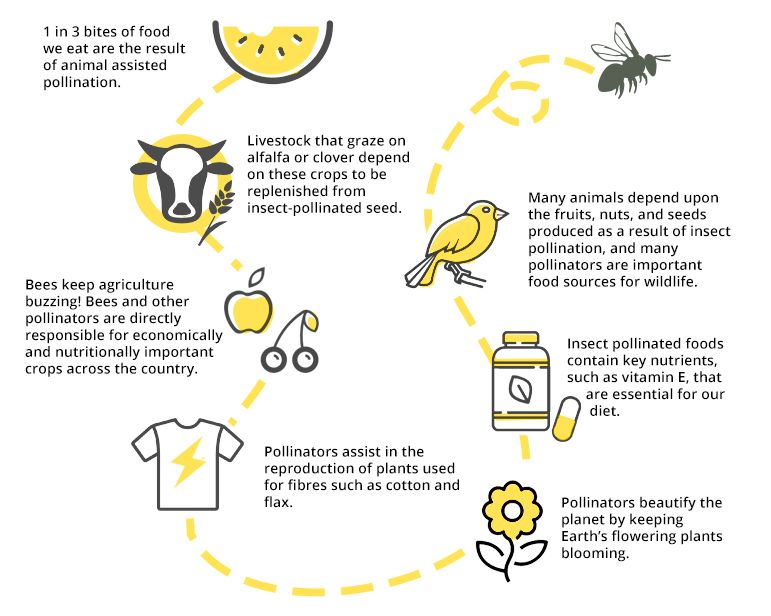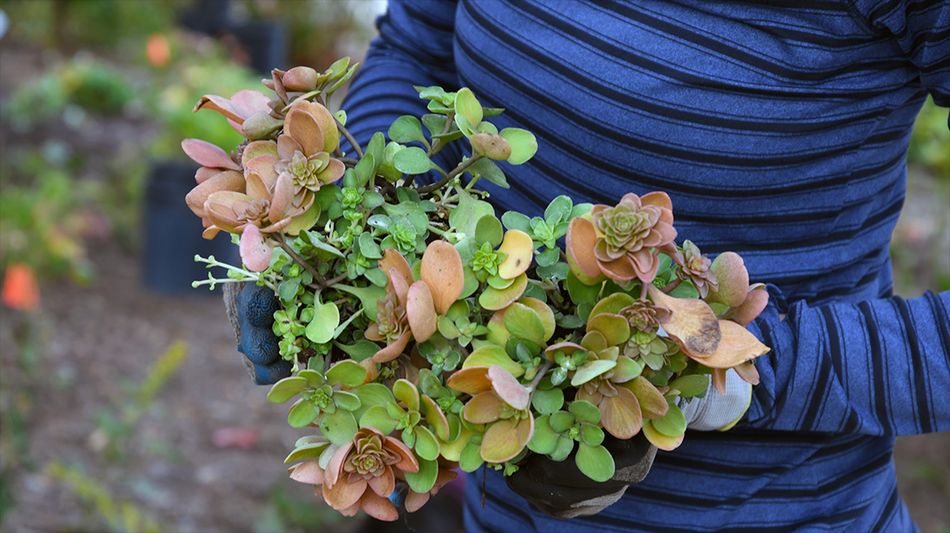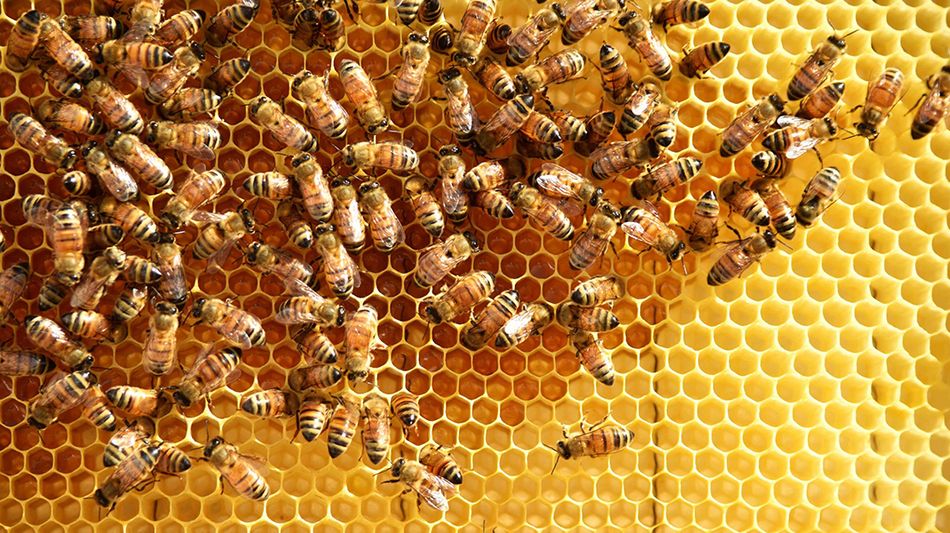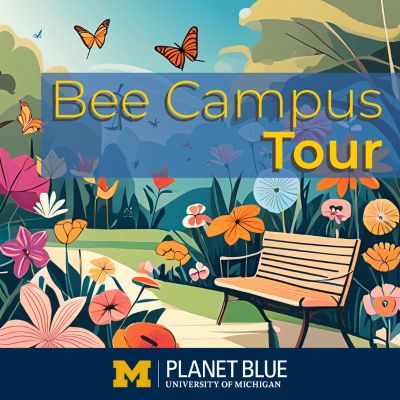Pollinator Conservation
At the University of Michigan, pollinator conservation and habitat restoration are valued parts of creating a sustainable campus. Students are advancing progress toward Bee Campus certification and engaging others on this topic. Grounds Services and other units follow sustainable practices such as planting pollinator habitat and minimizing chemical use. And in 2019, U-M met its Huron River protection goal—six years ahead of schedule.

Why care about pollinator conservation?
According to Xerces Society for Invertebrate Conservation:
- Pollination is essential for the reproduction of over 85% of the world’s flowering plants, including more than two-thirds of the world’s crop species.
- One in every three bites of food we consume every day is courtesy of insect pollination.
- Honeybee populations across the United States are dropping at a rate of 44% or higher annually. Thousands of other native bee species are also on the decline and in some cases have gone extinct.
Pollinator species around the world are suffering from rapid population loss due to pesticide use, habitat destruction, climate change and introduced environmental disease. Fortunately, there are many things we can do as individuals and as a community to help restore and conserve pollinator habitats and the species that thrive within them.

Major Initiatives
What's the buzz on campus?
Sustainable Land Management
Grounds Services, Matthaei Botanical Gardens and Nichols Arboretum, Radrick Farms, and the U-M Golf Course base their practices on U-M’s sustainable land management guidelines, which prioritize:
- Adapting to the local climate and environment.
- Preserving resources, reducing waste, and preventing air, water and soil pollution.
- Avoiding or minimizing the use of chemicals.
These guidelines translate into a variety of wise land management practices, including:
- Focusing on prevention by improving soil and selecting plants adapted to the site.
- Expanding low-maintenance and natural areas that reduce fuel use, store carbon and support pollinators.
- Using prescribed burns to manage invasive plants and restore soil.
See these sustainable grounds practices in action.
Bee Campus
The Ann Arbor campus is now certified as a Bee Campus, reflecting its commitment to pollinator conservation. Bee Campus USA certification confers wide recognition as a campus that actively practices pollinator sustainability.
- U-M achieved certification thanks in part to students from a 2020-21 SEAS masters project. The “SEAS Bees” group focused on comprehensive pollinator planning and outreach, including installing new pollinator habitat on campus and laying the groundwork for certification. Read more in the University Record and Michigan Daily.
- Learn more about Bee Campus and what you can do to help pollinators in this student-produced podcast episode!


U-M Pollinator Research
U-M contributes to pollinator conservation via high-caliber research. Highlights include:
- Both habitat quality and biodiversity can impact bee health
- Roads pose significant threat to bee movement and flower pollination
- First genetic evidence of resistance in some bats to white-nose syndrome, a devastating fungal disease
- Monarch butterflies rely on temperature-sensitive internal timer while overwintering
- How informed design can make a difference: supporting insect pollinators in cities

Learn More and Get Involved
The bee community is buzzing at U-M! A strong, sustainable student presence is essential for pollinator conservation success. Check out these opportunities to get involved.
Events
Pollinator-related events regularly appear on the Planet Blue event listings.
Ann Arbor campus and greater Ann Arbor area
- UMBees
- Campus Farm
- U-M Sustainable Food Program
- U-M Ann Arbor Campus Pollinator committee: email UMA2BeeCampusUSA@umich.edu with questions or interest in participating
- Gardens, farm stands and more on the U-M Sustainability Map (select “sustainable food”)
- Washtenaw County Food Policy Council Pollinator Policy Action Team
Dearborn campus
UM-Dearborn is certified as a Bee Campus.